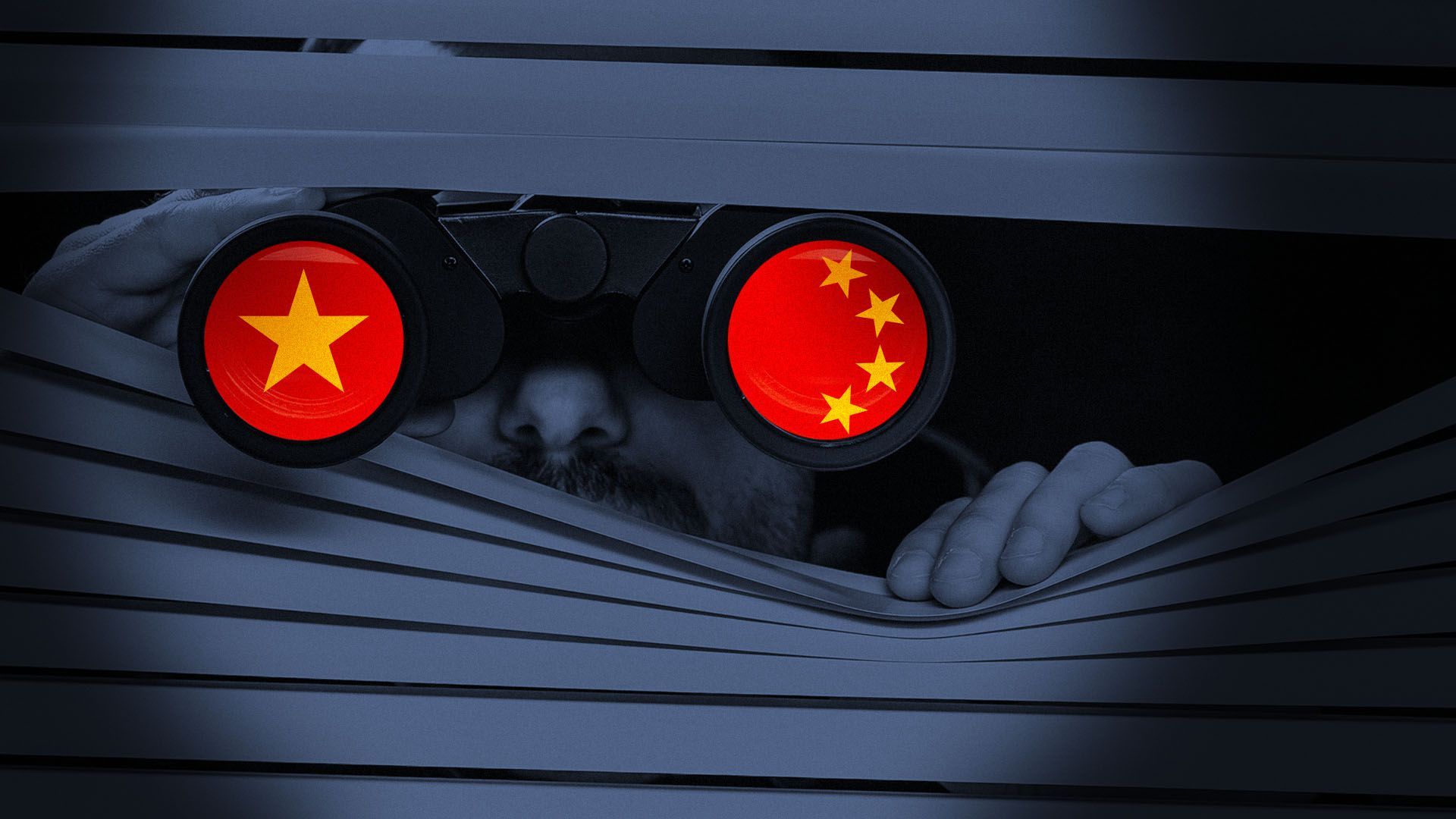Singaporean national pleads guilty to serving as Chinese government agent
Add Axios as your preferred source to
see more of our stories on Google.

Illustration: Sarah Grillo/Axios
The FBI has charged an individual with serving as an illegal agent of the Chinese government. Jun Wei Yeo pled guilty to all charges on July 24 in a federal district court in Washington, D.C.
Why it matters: The case comes amid a major Justice Department initiative to crack down on what it describes as widespread Chinese espionage and intellectual property theft in the U.S.
- According to prosecutors, Yeo, who also goes by Dickson Yeo, worked as an unregistered agent of the Chinese government from around 2015 until November 2019.
- "At the direction of Chinese intelligence operatives, the defendant targeted U.S. government employees and an Army officer to obtain information for the government of China. Mr. Yeo admits he set up a fake consulting company to further his scheme, looked for susceptible individuals who were vulnerable to recruitment, and tried to avoid detection by U.S. authorities," said Alan E. Kohler, Jr., assistant director of the FBI's counterintelligence division.
What they're saying: "The Chinese government uses an array of duplicity to obtain sensitive information from unsuspecting Americans,” Assistant Attorney General for National Security John C. Demers said in a press release.
- "Yeo was central to one such scheme, using career networking sites and a false consulting firm to lure Americans who might be of interest to the Chinese government. This is yet another example of the Chinese government’s exploitation of the openness of American society."
Details: Yeo was charged with serving as an "illegal agent of a foreign power" under Title 18, U.S. Code, Section 951. That statute, what U.S. intelligence officials informally call "espionage lite," is the same statute under which Maria Butina was charged in 2018 for serving as an agent of a Russian government.
- This is different from a Foreign Agents Registration Act (FARA) violation, which falls under Title 22, Section 618. (Paul Manafort was charged under that statute, which is considered a less serious charge, in 2017.)
- "The key difference is that 951 isn't about normal FARA activity like lobbying or public relations work. This statute is for borderline spies," said Ben Freeman, director of the Foreign Influence Transparency Initiative at the Center for International Policy. "The bottom line here is that the Department of Justice appears to believe Yeo was acting more as a spy than an unregistered lobbyist."
The backdrop: William Evanina, the director of the National Counterintelligence and Security Center, said in 2019 that the Chinese government was using LinkedIn "on a mass scale" to try to recruit current and former U.S. officials and others to provide information to agents acting under false names.
The bottom line: It is notoriously difficult to bring charges of serving as a foreign agent because prosecutors have to prove willful intent, meaning the individual knew about the law and chose to violate it. That is one reason why charges under both statutes are rare.
